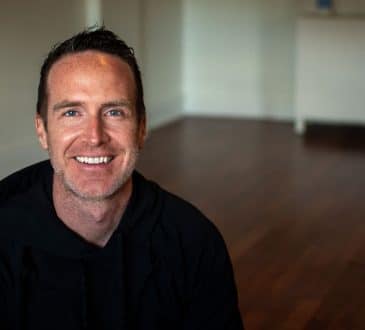Major companies aim to reach zero emissions by 2050 – Khadisha Ussenbayeva on the future of the oil and gas industry

Lately, major oil companies have dealt with a challenging business environment caused by the pandemic and international relations. In such an environment, companies have been forced to reduce capital expenditures while coming under pressure from investors who expect not only for increased profitability, but also for improved environmental, social performance and efficient management.
It is important to note that oil and gas companies play a key role in the clean energy transition, and some have already set ambitious targets, such as achieving zero emissions by 2050. Such ambitions require additional efforts to raise capital, innovate, and optimize costs.
The role of a business plan and cost management coordinator is crucial in the oil and gas industry, ensuring that the activities of modern companies are planned and implemented correctly.
An experienced specialist has the expertise and skills to analyze current costs, identify potential cost reduction opportunities, and develop strategies to improve financial performance. We will talk about the role of such a coordinator in the oil and gas industry with Khadisha Ussenbayeva, coordinator for a business plan and cost management in the oil and gas industry, internal coach at Chevron, leading specialist at Tengizchevroil in Kazakhstan, whose partners are the leading US oil and gas companies – Chevron and ExxonMobil.
Khadisha, what are the most challenging issues the industry is facing nowadays?
Today, oil and gas companies are playing an essential role in the clean energy transition, with some large companies aiming to reach zero emissions by 2050, which requires additional efforts to raise capital.
One approach to addressing the challenges is to have a flexible model based on a baseline performance criteria methodology to successfully improve cost competitiveness and operational sustainability in the oil and gas industry. Such methodology refers to an approach that focuses on defining a minimum set of functional tasks or requirements set by the company that are necessary to achieve business objectives. Efficiency is achieved by prioritizing, and companies can invest in projects requiring minimum investment while maximizing their value and profitability.
Guided by a methodology to establish baseline performance criteria, which may include determining the class of cost estimates for each project, taking into account the timing associated with the dates of approval of expenditure and funding, updating production profiles by the latest reservoir simulation models, taking into account risks of reservoir uncertainty and capacity of field facilities at plants and gathering systems; conducting comparative analysis and project appraisals using current inflation rates, oil and petroleum product price forecasts, transport tariffs and other key assumptions; implementing measures to optimize the entire portfolio to meet established cost targets and other business objectives; undertaking benchmarking to assess the competitiveness of the business plan in relation to the broader oil and gas industry.
Such methodology can serve as the basis for developing an estimate of the incremental value of each promising investment. The goal is to create a comprehensive business plan for the next five to ten years, align it with budget targets, and achieve critical operational and business metrics. As a result, companies can decide on a planning process, lead prioritized funding, and implement projects that demonstrate exceptional competitiveness. These projects will complement the development of reservoir management and comprehensive plans to increase production capacity.
Key initiatives include drilling new wells, optimizing existing field facilities by optimizing the gathering system, enhancing oil recovery projects, carbon reduction projects, and other strategic endeavors. These are the issues I am currently working on.
Are there any other unique characteristics of your personal role within the company?
I started my professional career in the oil and gas industry – in the leading company of Kazakhstan “Tengizchevroil,” which is a joint venture with the US oil giant Chevron, the Kazakh state oil company KazMunayGas, the American company, one of the largest oil companies in the world ExxonMobil, a subsidiary by the Russian oil company Lukoil – LukArco.
My expertise allows me to add value and benefit to a company by applying my knowledge and practice in the field of transformation and managing changes using business coaching. The International Coaching Federation defines coaching as a technology that aims to partner with clients to stimulate thought and creative processes, inspiring them to fulfill their personal and professional potential. I have successfully implemented this approach at the company’s individual and organizational levels. Due to the effective work with the teams, the quality of communication, work efficiency, and cost optimization are enhanced.
Khadisha, please tell us what the main goal and objective of your work as a business plan and cost management coordinator is.
The main purpose of this position is to lead the development and strategic alignment of the five to ten-year business plan and to ensure that the tactical plan is delivering on key business objectives. My role requires a high level of cross-functional coordination across multiple departments and partners and is critical in ensuring long-term success for the company and the planning process.
The business plan and cost management coordinator must also ensure compliance with delegation of authority, funding approvals, cost approvals, and other necessary planning documentation. Most importantly, it’s vital to clearly understand how each part of the plan — such as execution schedule, production forecasting, cost forecasting, economic indicators, and project completion analyses — is linked so that potential issues can be identified and resolved promptly.

Can you tell us about the major project you have managed?
Since 2020, during the pandemic, I have provided business planning and cost optimization consulting services. This project involved developing and implementing a flexible model for implementing an integration business plan afterward. To successfully increase competitiveness and operational sustainability during the pandemic, many oil and gas companies faced the issue of cost optimization. At that time, I was one of the top leaders in cost and budget optimization efforts.
One of the most challenging and significant projects was the implementation of digital solutions for cost optimization and efficient production management of the oilfield development. We have engineered digital technologies that enable faster decisions on the order of wells to be drilled and the location of new wells to maximize production and create economic value. This decision was one of the critical deliverables for developing a business plan that can be optimized for current market conditions. It is important to consider the strategic conclusions for the future development of the field and the current market conditions so that the chosen business planning strategy does not diminish the company’s value. Thus, digital technologies are becoming an essential tool in modern business planning for oil and gas companies and in optimizing their costs.
Can you tell us about your personal achievements in the oil and gas industry?
I constantly strive to develop and learn, taking various training courses and obtaining certificates in various fields, including MBA, psychology, psychotherapy, coaching, organizational leadership, agile methodologies, and cognitive strategies. I commit to continuous growth and professional development. In addition, the International Coaching Federation’s accreditation of several programs underlines my dedication to maintaining high professional standards and ethics.
Some certifications I have received include executive and organizational coaching, corporate agile coaching, business coaching, and team coaching. These all focus on leadership development and effective organization management, which are vital for strengthening teamwork and strategic planning and helping to deliver tangible results in the oil and gas sector.
Through my commitment to professional development and active participation in industry associations such as the Society of Petroleum Engineers (SPE) and the International Coaching Federation (ICF), I can attest to my dedication and constant pursuit of leadership.
In addition, my academic and professional achievements are also evidenced by publications. I co-authored the paper “Successful Application of a Fit-for-Purpose Acid Program in the Tengiz Field,” presented at the International Petroleum Exhibition and Conference in Abu Dhabi in November 2012. This publication reflects my experience and innovative contribution to the field of petroleum engineering.
Please tell us about your plans for the future.
With my experience and expertise, I intend to continue as a business mentor and leader in developing and building compelling business strategies for companies in the oil and gas industry to increase profitability and improve economic, environmental, social, and governance performance globally.
I want to gain international experience working in countries such as the United States, for example, to improve my skills and gain an exchange of experience to promote a global transition in the energy sector. The development and production of shale oil are now actively developing in the United States; the portfolio of renewable energy sources such as wind, solar, and hydrogen is being diversified and integrated; there is growing interest in carbon capture and storage technologies that capture carbon dioxide emissions from industrial processes and power plants, including in the oil and gas sector; infrastructure is being developed, including pipelines, terminals, and LNG (liquefied natural gas) export facilities.
My long-term professional plans are focused on driving change and transformation in the oil and gas industry. My primary objective is to contribute to the global energy transition, particularly by reducing carbon emissions and increasing sustainability through adopting advanced technologies and effective waste management practices. I aim to significantly contribute to optimizing all stages of the value chain for the oil and gas industry, including upstream, midstream, downstream such as field management, field facilities, marketing, transportation, and distribution. Developing and implementing business optimization strategies will help improve asset management, operational efficiency, and profitability.
By combining an iterative agile approach with a baseline performance criteria methodology focused on key objectives for companies, I will be able to facilitate the development of business strategies that improve competitiveness and operational sustainability in the oil and gas industry. This methodology will establish minimum functional requirements to achieve strategic objectives, including safety, legal compliance, project economics, staffing strategies, carbon reduction targets, production targets, capital expenditure thresholds, and competitiveness metrics.
I also plan to continue to develop my coaching practice, identify latent abilities, improve leadership competence and teamwork, and find ways to achieve high business results for the whole company and for the individuals.
Have you read?
Most Fashionable Countries. Best Countries For Business Expats. Best Non-Native English Speaking Countries. Countries With the Largest Household Size. Best Countries For Older People To Live In.
Bring the best of the CEOWORLD magazine's global journalism to audiences in the United States and around the world. - Add CEOWORLD magazine to your Google News feed.
Follow CEOWORLD magazine headlines on: Google News, LinkedIn, Twitter, and Facebook.
Copyright 2025 The CEOWORLD magazine. All rights reserved. This material (and any extract from it) must not be copied, redistributed or placed on any website, without CEOWORLD magazine' prior written consent. For media queries, please contact: info@ceoworld.biz








